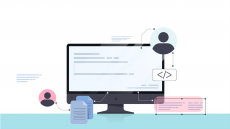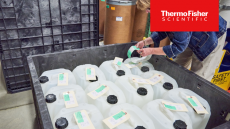PRA to go private as Q2 profit tumbles
be bought back by the firm for around $790m (€580m) while the CRO
posted a 90 per cent tumble in profit in Q2 due to heavy
restructuring charges.
Under the terms of the deal with Genstar, PRA stockholders will receive $30.50 in cash for each share of PRA common stock, representing a premium of 13 per cent to the firm's closing share price on July 24, 2007.
The members of the Board of Directors of PRA are backing up the deal and recommend that PRA stockholders approve the merger, following the unanimous recommendation of a special committee composed entirely of independent directors PRA's chief executive Terry Bieker remained tight-lipped about the reasons behind PRA's decision to go private and the specific factors taken into account by the special committee to consider the Genstar acquisition but said that "at this time they assessed the situation and decided it was the right thing to do".
"This decision has not been made so the company can perform better in a different venue.
It was because this was a very good return to the shareholders," said Bieker during a conference call last week.
However, during the same call analysts suggested that the premium price offered to shareholders under the terms of the Genstar deal would probably be reached anyway by the end of the year, while some said the share price offered was too low, qualifying the whole deal as "stealing the company".
Asked whether one of the reasons behind the buyout decision was to ease the process for potential future acquisitions, since it is generally more straight-forward to integrate an acquired company to a private firm compared to when the company is publicly listed, Bieker said: "More acquisitions are on the horizon and we are confident that Genstar would provide the capital to do so."
"Going private will not impact the daily lives of our employees and we definitely think it will not impact the services we provide to our clients," he added.
Under the agreement, there is a 50-day "go shop" period, during which the company is free to consider other offers from potential acquirers, Bieker said.
However, if a third-party proposal made during this period leads to a definite sale, PRA would have to pay a $7.9m break-up fee to Genstar.
If PRA does not consider any other offers and its shareholders approve the acquisition, Genstar - which already owns about 13 per cent in the firm - would be basically buying back the company which it floated in 2004.
The announcement came on the same day as PRA posted a 95 per cent drop in operating income in its second quarter financial results.
The company's operating income was $374,000, compared with $7m in the same quarter of 2006; a drop due to a $6.7m restructuring charge related to the closure of two offices in Eatontown, New Jersey and Ottawa, Canada, and $682,000 related to the Pharma Bio-Research acquisition in July last year.
"2007 is a foundation building and a turnaround year for PRA," said Bieker during the conference call.
For the three month period ended June 30, 2007, PRA generated service revenue of $90.2 million compared with $70.1 million in the second quarter of 2006.
Direct costs were up 36 per cent to $49.9m for this quarter, from $36.6m in the same quarter last year, while selling, general and administration (SG&A) costs also jumped 51 per cent to $36.1m in the period - an increase also due to the restructuring strategy the company has been making over the last year.
PRA also decided to revamp its business structure to focus on three basic service areas: early development, product registration, and scientific & medical affairs, in a bid to make the business "more efficient and profitable in the long-term".
During the quarter 72 per cent of the revenue came from product registration, 20 per cent from early development services while science and medical affairs accounted for 8 per cent of sales.
"This was consistent with our target," said Linda Baddour, the company's recently appointed chief financial officer.
Meanwhile, 54 per cent of the company's service revenue came from North America, 42 per cent from Europe and 4 per cent from the rest of the world.
This compares to 65 per cent from North America while 32 per cent came from Europe and 3 per cent for the rest of the world, during the same quarter in 2006.
"The shift in work from North America to Europe can be attributed primarily to a new early development services unit in the Netherlands which was not present in the second quarter of 2006," said Baddour.
The company also restructured its management team during the second quarter with the permanent appointment of Bieker as chief executive - he has been in the position temporarily since last December - while naming a new chief financial officer and chief operating officer.
Looking forward, the company confirmed its full-year outlook for 2007 with sales expected to be between $330m and $350m.















